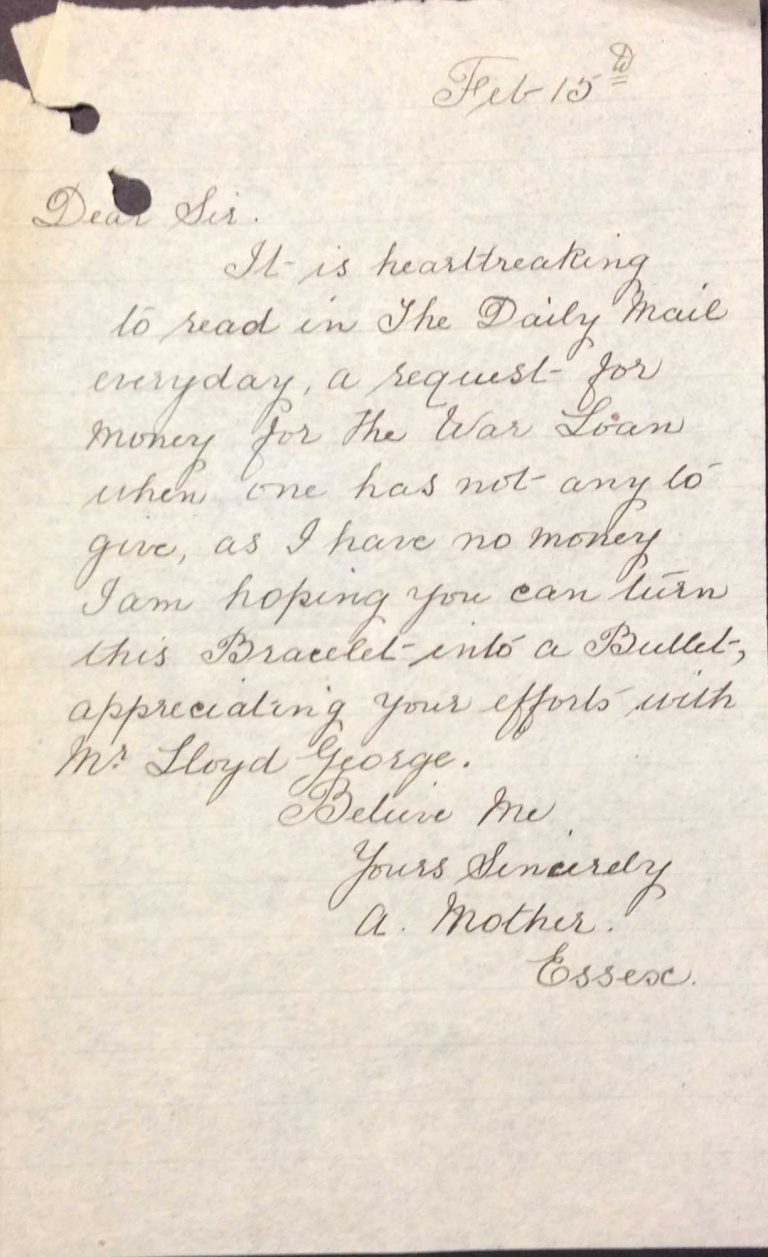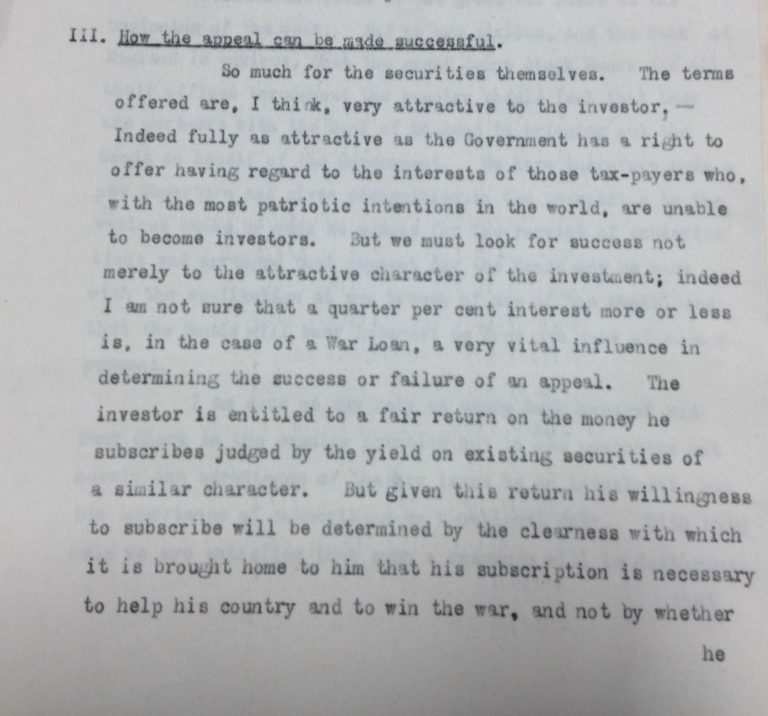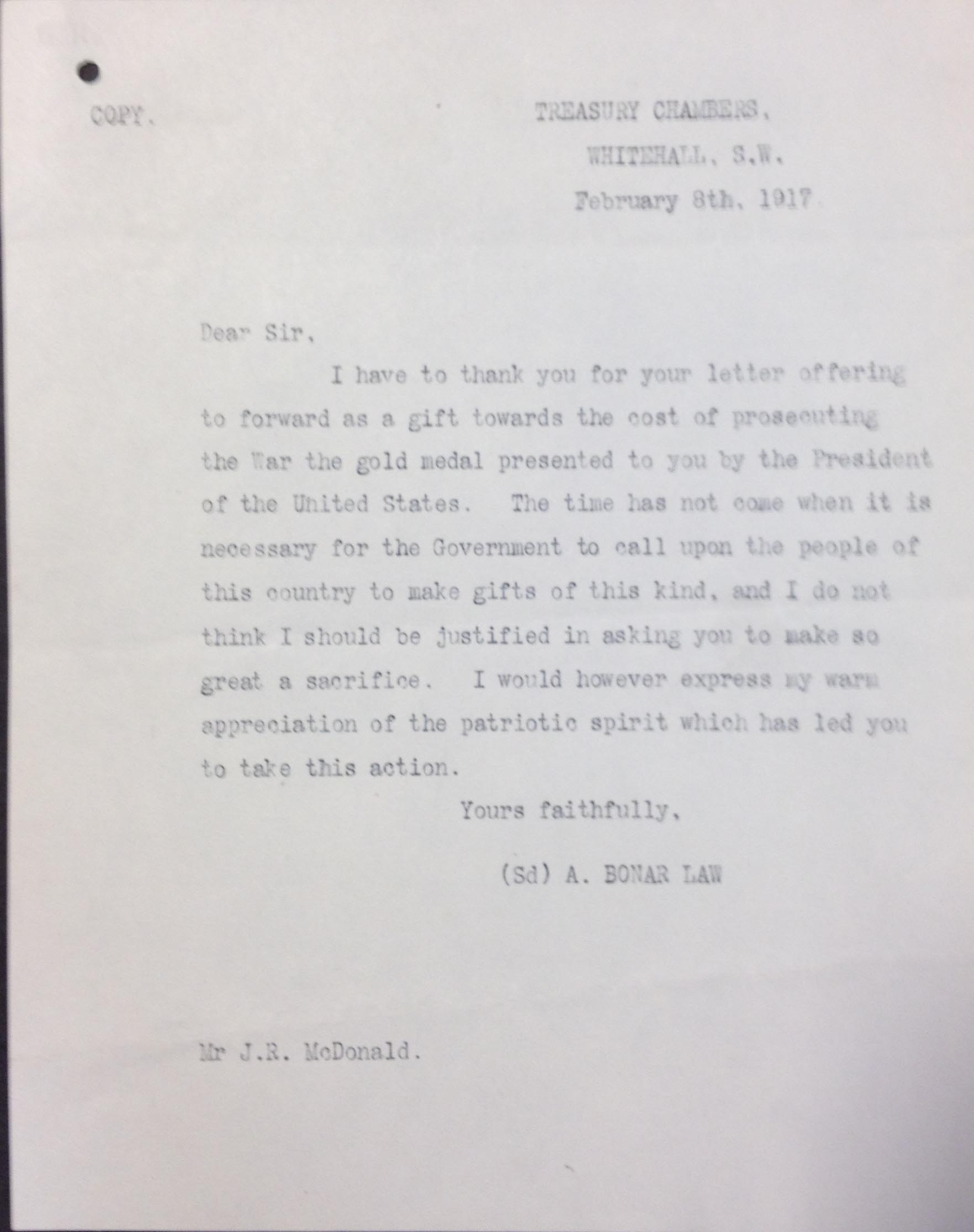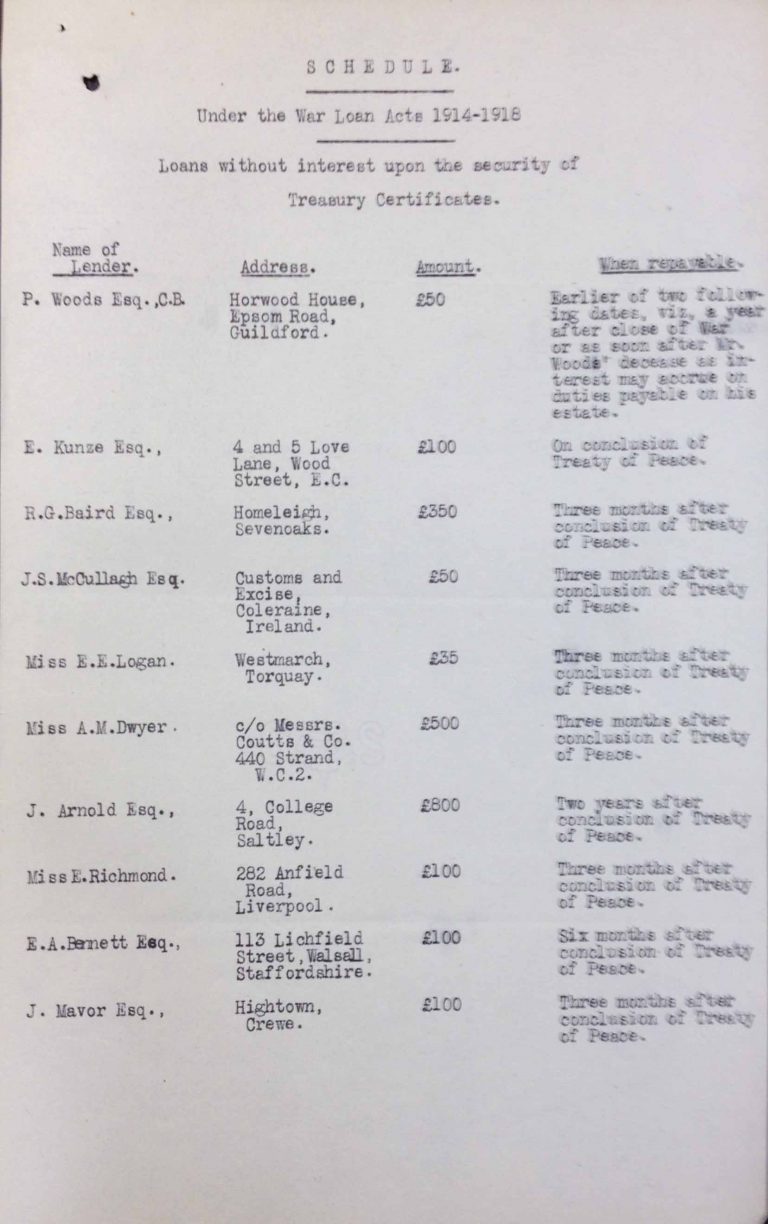Today the UK Government is due to pay back the outstanding £1.9 billion from a 3.5% war loan which dates back to the First World War. [ref] 1. ‘Chancellor to repay the nation’s First World War debt’[/ref] Another debt which has been repaid this year is £218m from a 4% consolidated loan which was issued by Churchill in 1927 to re-finance National War Bonds from the First World War.[ref] 2. ‘Chancellor Osborne to repay part of our First World War debt’. [/ref]
The repayment of these large sums of money show the formal side of war funding, yet under the surface there was a strong sense of national duty felt by the public which ultimately fuelled an under-current of informal lending that is largely overlooked today. Documents held here at The National Archives demonstrate a variety of different ways in which the public was engaged in funding the war effort, from National War Bonds to more unconventional methods.
National War Bonds were not an entirely alien concept to the thousands that bought them; the Government had previously introduced modest schemes including War Savings Certificates and Exchequer Bonds. However, it was National War Bonds, first introduced in 1917, that seemingly captured the imagination of the masses. The bonds were short-term government secured investments. For many they would have seemed a risk free way to make money and a chance to secure victory for Britain. The key to the popularity of National War Bonds is possibly linked to their marketing.
Marketing the bonds
From T 170/114 we can see that the Treasury was keen to market the bonds appropriately. It states: ‘willingness to subscribe will be determined by the clearness with which it is brought home to him that his subscription is necessary to help his country and to win the war’.
It was felt that being a good investment alone would not be enough to create the levels of subscription required. To gain the support of the public the bonds needed to equate to a national duty in the mind of the masses. Using our image library you can search for posters that were created with these marketing tactics in mind.
This poster seems to tie in with the patriotic feeling that the Government wanted to create around the bonds – on seeing the poster the public may have felt that it was their duty to buy the bonds to support their loved ones on the front line. Another poster was targeted towards women, who were not able to fight in the trenches. The poster has an image of a woman waving a Union Jack with the slogan ‘Fight with National War Bonds’. The Government was, in effect, saying that by buying bonds you were fighting alongside men on the front line. These advertisements would have had an impact on the general public as feelings of inadequacy resulting from not being on the front line would have been reduced with the purchase of bonds.
Informal lending
Whilst many investors bought government bonds to help win the war, others offered small gifts and loans to the Government in a semi-informal way. Discussion of this can be seen in T 172/696. A report on the success of the war loans and other fundraising schemes in February 1917, before the release of National War Bonds, states that up to that point small gifts and loans had raised £328 2s 10d. Similarly, it describes that many gifts of gold and silver had been sent to aid the war effort. A short handwritten letter included in the document demonstrates this desire to help in any way possible.

A handwritten letter from a lady who is offerring the Government a bracelet to aid the war effort as she is too poor to invest formally.
Letter from ‘A. Mother’ offering a bracelet to aid the war effort (T 172/696)
The picture above shows that even ‘A. Mother’ from Essex without money to spare was desperate to contribute in any way possible; she offered a bracelet to the Government so that it could be turned into a bullet. The publicity campaign that attached a sense of duty to the various funding streams seems to have fuelled a desire in individuals to donate what they could outside the parameters of the formal schemes. The back of the file contains several other letters from people offering jewellery in addition to some responses from the Treasury. One such response is to a man who had offered a gold medal presented to him by the President of the United States.
While these letters are particularly emotive, other documents show the scale of the public’s generosity. Examples of this are lists of individuals who offered small (though undoubtedly substantial to them) interest-free loans to aid the war effort. One of the lists I found is in T 1/12320.
The people on these lists offered to lend the Government varying sums of money to be repaid at times they specified – the most common date being three months after the declaration of peace. These lists, again, show that people from all backgrounds gave what they could to aid the war effort; someone with a Coutts bank account is listed as lending £500 alongside a lady from Torquay who had offered £35.
The documents I have shared with you are fascinating because they provide us with so much more than a dry economic history of the First World War. They illustrate the public’s remarkably ferocious appetite to aid the war effort and the various ways in which they did. People of ordinary means not only invested in the war but offered to the Government all they could spare to help secure victory. While we are due to repay part of our war debt today we should remember that some members of the public offered objects that, if accepted, could never be replaced.




[…] Loan lists closed; over £1,000,000,000 of new money […]
My father bought war bonds when he was working as a miner in Norton Hill Colliery Somerset ,during the Second World War ,He was chosen to help in secret operations in the mendip hills Somerset ,Arming the auxiliary units .years after the war my family tried to claim back the money for my dad ,because of his involvement with the Army they could not find any trace of him working in the mines .A book was written about his time in the secret operations called Somerset v Hitler .